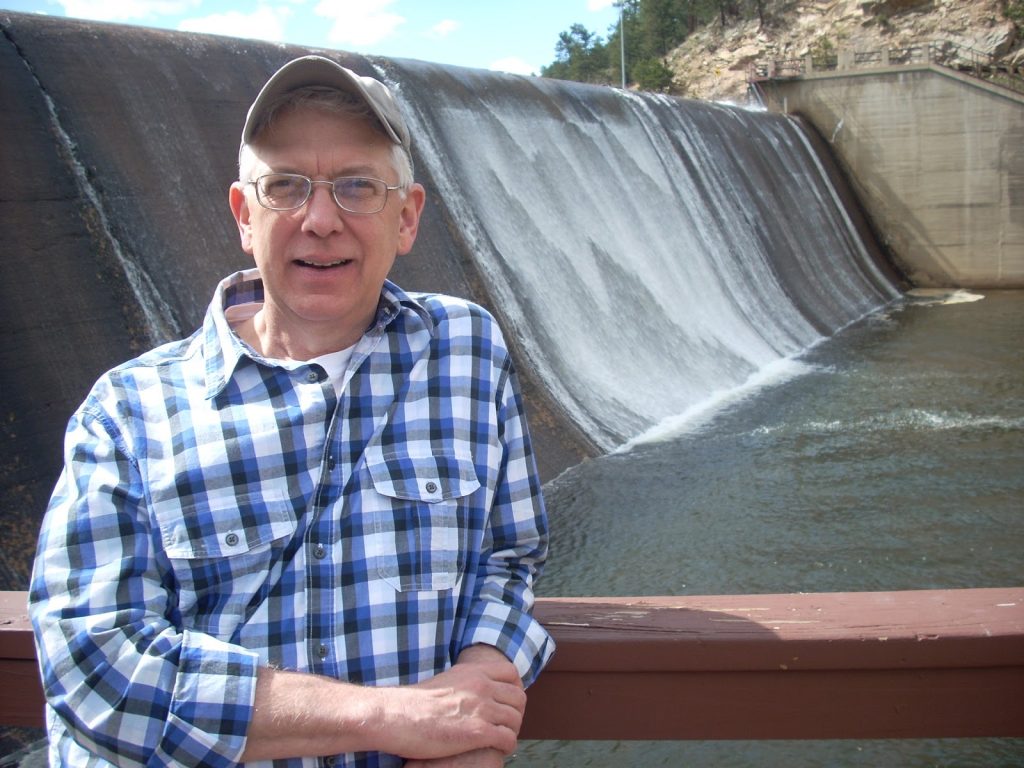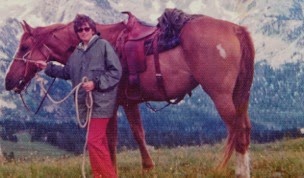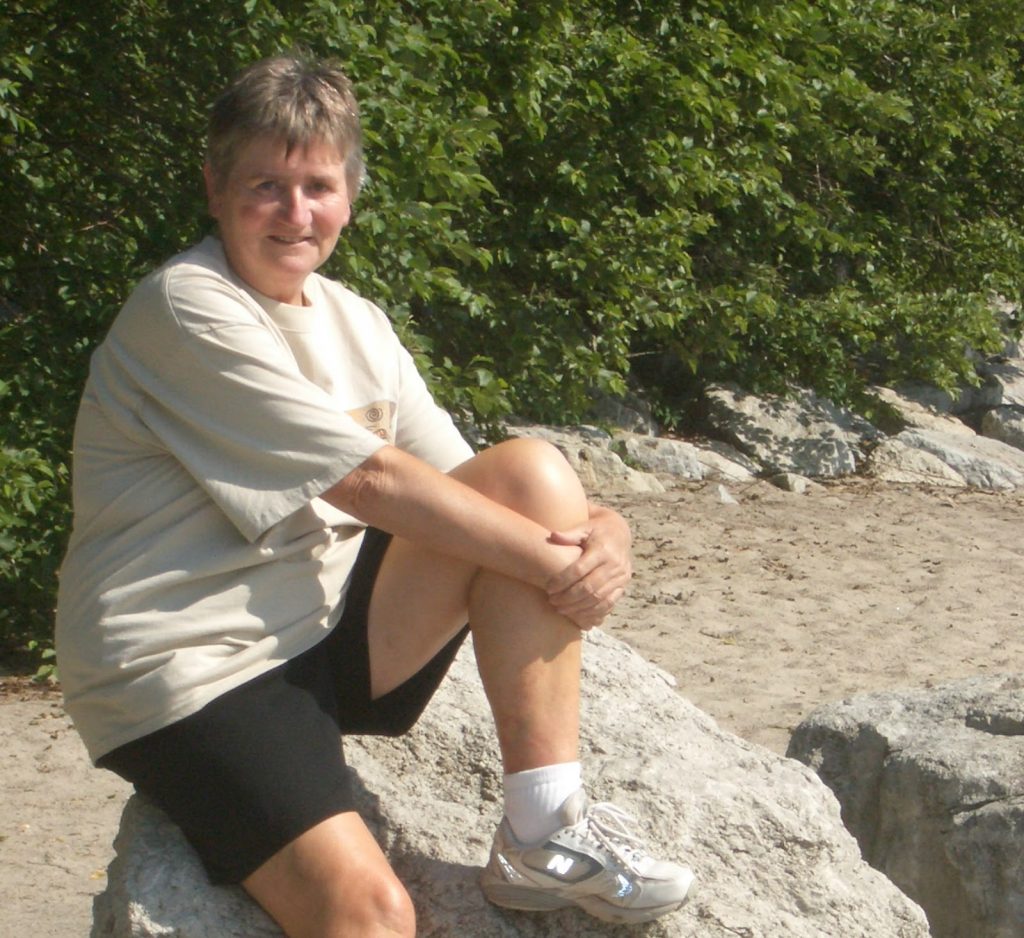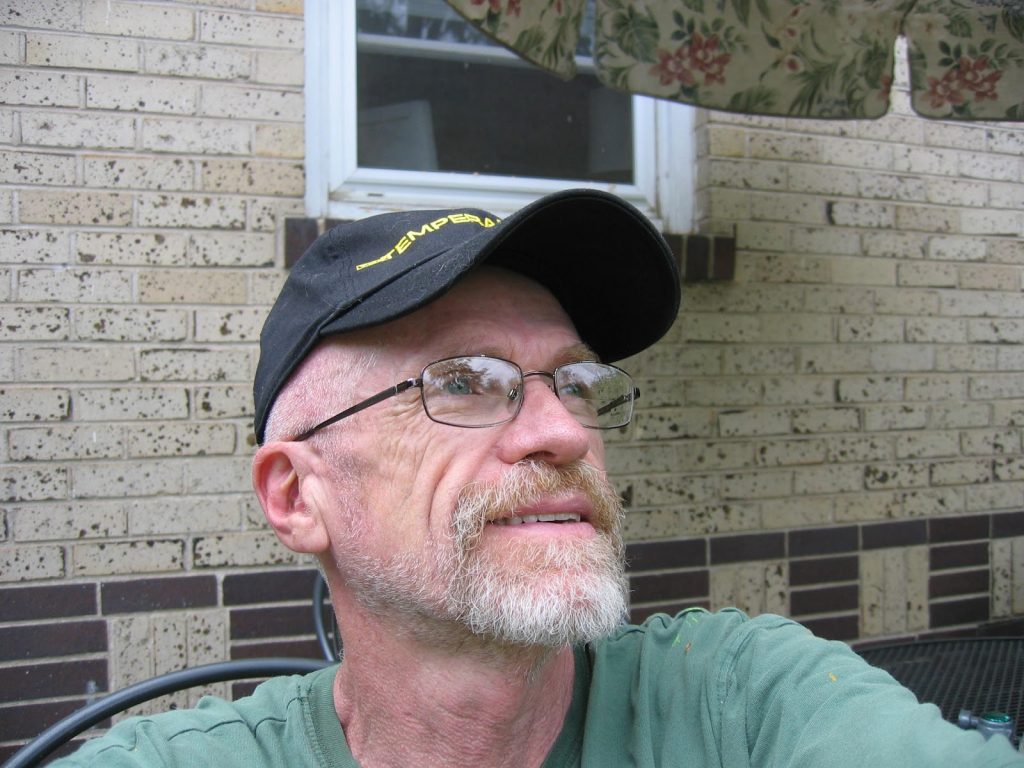In a very important sense I was drifting through life back then. Oh I had goals in my career and a highly structured schedule, but I was living into the common cultural expectation of marriage with children. I appreciated that my ministerial work afforded me the luxury of reading, researching, teaching, and the like. I easily tolerated the work conditions. In regard to family, I lived with a wonderful woman and by then two very interesting and creative children. I floated my way downstream keeping in the current but letting it move me along well-worn channels.
Then Mike A drifted into my life. He showed up one afternoon at the church where I worked, out on Camp Bowie Boulevard in west Fort Worth, Texas. I didn’t know what he expected, but there he stood looking a little beat down yet clean in cowboy boots, western shirt, Levis, and sporting a tooled leather belt with a big metal buckle that announced in all caps STUD. I was amused as well as concerned. We talked. He wanted help getting his life back together.
I don’t remember if Mike had his equipment with him but he told me he was a welder and needed to get a job. He may have had his welding mask and gloves and probably a suitcase or a box of clothes. He did have a rather pleasant manner and spoke working-class Texan with a distinct twang, drawn-out syllables, and what seemed to me, strange pronunciations. He also had a sense of humor and a charming smile. He was down on his luck but he wasn’t done with life or with living it.
Mike assured me he would be able to get work if he could just get to a particular place to apply. Realizing he’d have to rely on me for a few days, I drove him to a fabrication shop way out in east Fort Worth where he secured a job. Maybe he’d worked there before; I didn’t know. In fact I knew nothing about this world, but Mike did start work at that shop the next day.
Mike knew his trade. While returning to our apartment, he said my car was “arkin’” and asked me to pull into the grocery store and give him a dollar. He’d fix it. I knew there was something draining the power from my car and had wasted quite a bit of money paying mechanics who didn’t repair it. I had no idea what was wrong, nor had I ever heard the word “arkin’.” For 89 cents Mike bought electricians tape and wrapped the places where the insulation had worn off a couple of spark plug wires. He knew the sound of an electric arc; after all he was a welder. And his fix held for many years!
Mike went home with me to my wife and two kids and stayed for a week. I gave him a ride to work and picked him up at the end of his shift—what in the church office I called my paper route. One parishioner overheard the reference and asked the secretary if the church wasn’t paying me enough to live on. That week as we traveled back and forth across the city, I picked up random details about his life, his loss of job, his estrangement from his wife, their two girls who lived with her. I felt like I’d gone down this road before; assisting someone, wondering if my efforts would really help.
Within a week Mike arranged two-way transportation for work. It didn’t occur to me that he was probably back into a network of relationships he had known for years; I was too busy with my life to worry over his details. Mike met church people at our apartment. For him being around educated folk may have seemed odd. One of them perceived Mike’s alcoholism. I knew he drank; she knew of his disease. Her insight made sense of some things I had observed.
One night Mike called me. He had burned his eyes at work—a common hazard for welders. “Could you get some eye drops and bring them to me?” he asked. “Of course,” I answered inquiring just what kind he needed. I drove over to his by-the-week motel, knocked on his door, and administered the eye drops. That’s when Mike gave me one of the most precious gifts I’d ever received. As the sting was abating from his eyes he looked up and said, “I love you, Phillip.”
“I’m happy to help,” was my defended reply to this rather crass, beer-guzzling, Texas cowboy stud. But I was stunned. No man had ever said those words to me, not even in my family.
I knew about love. In college years I had learned to speak words of love to my girlfriend, who became my wife. Actually she taught me how. Saying such words seemed a requirement to get married. I’d said “I love you” many times to her, to my son, to my daughter, and I meant it. A couple of years before Mike drifted into my life I realized that I had fallen in love with a male seminary classmate. I refrained from saying “I love you” to him lest it seem manipulative or, worse, scare him away. Now this drunk said “I love you” to me. I took it to mean he deeply appreciated my help. At the same time I realized I was not interested to explore any further dimensions of its potential with him. My heart was already elsewhere—way too committed to my family and to the one male friend I adored.
I also came to realize my patient and caring help to this man who may have been starved for any kind of love—that along with his lowered threshold of defenses due to his drinking—left him open to say whatever he felt. I received his drifting expression with deep appreciation and realized how much I wanted, even needed to be loved deeply by a man, especially one who might open his non-alcoholic heart to me.
It took twenty more years of maturing for me to do what my heart of hearts desired: to live with a man I loved and who loved me. But I wonder how many more years may have passed if I had not heard those words from my Texas cowboy STUD. His gift to me far exceeded mine to him, and I continue to appreciate that Mike A. had drifted my way.© Denver, 2014
About the Author
Phillip Hoyle lives in Denver and spends his time writing, painting, and socializing. In general he keeps busy with groups of writers and artists. Following thirty-two years in church work and fifteen in a therapeutic massage practice, he now focuses on creating beauty. He volunteers at The Center leading the SAGE program “Telling Your Story.”
He also blogs at artandmorebyphilhoyle.blogspot






